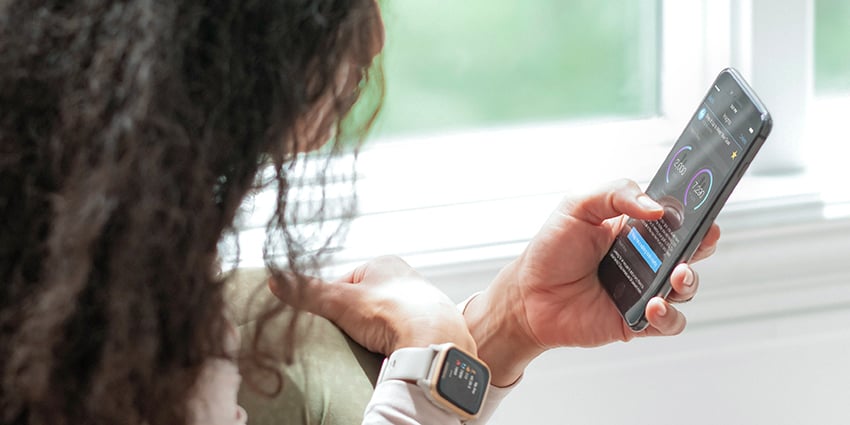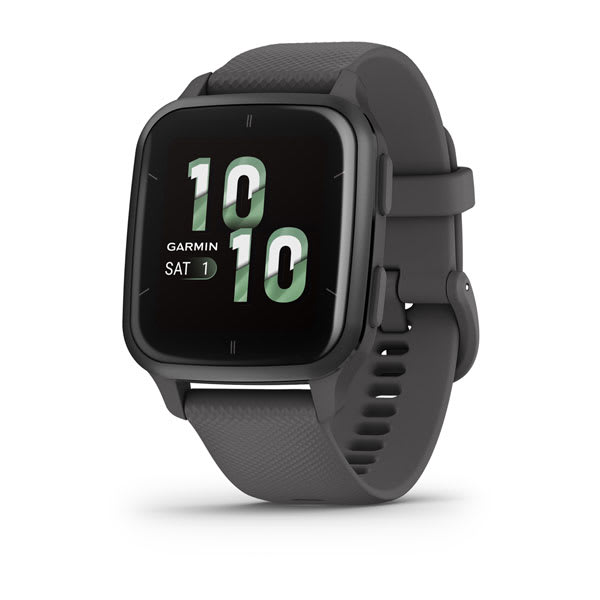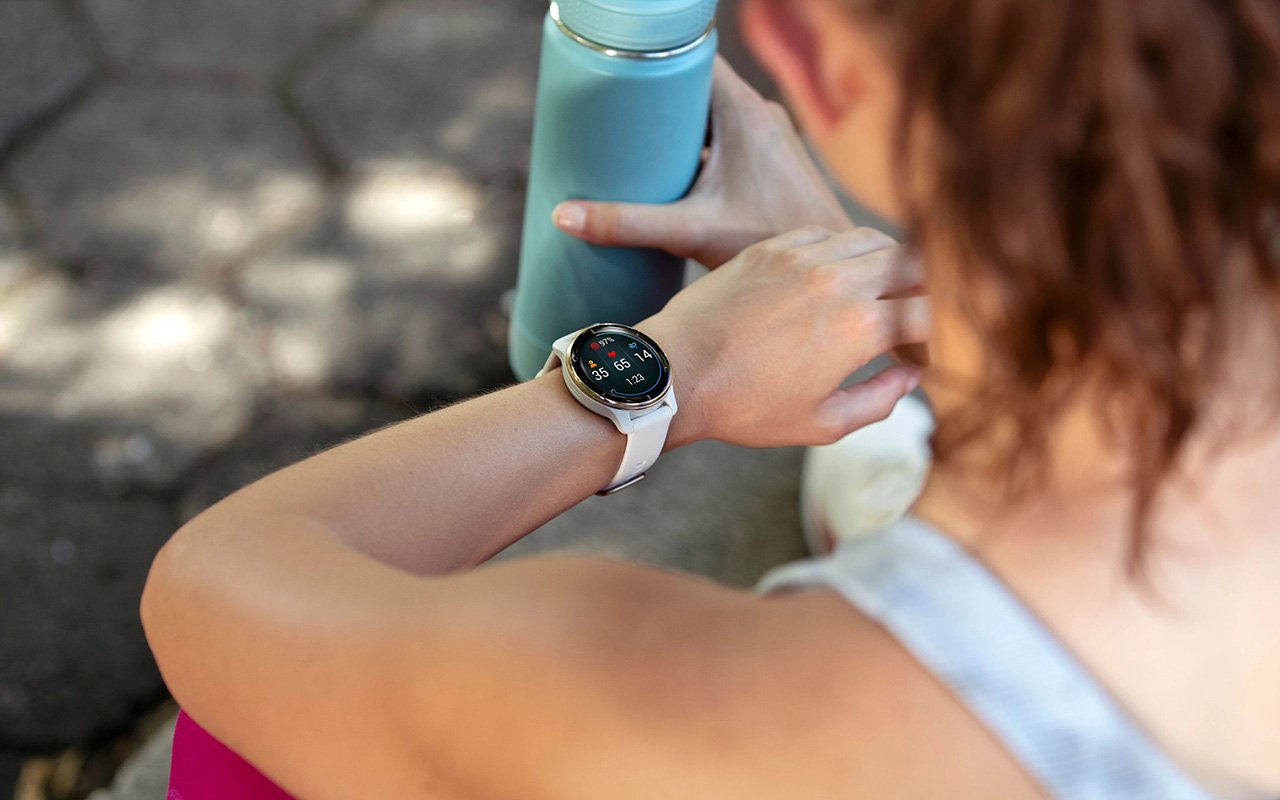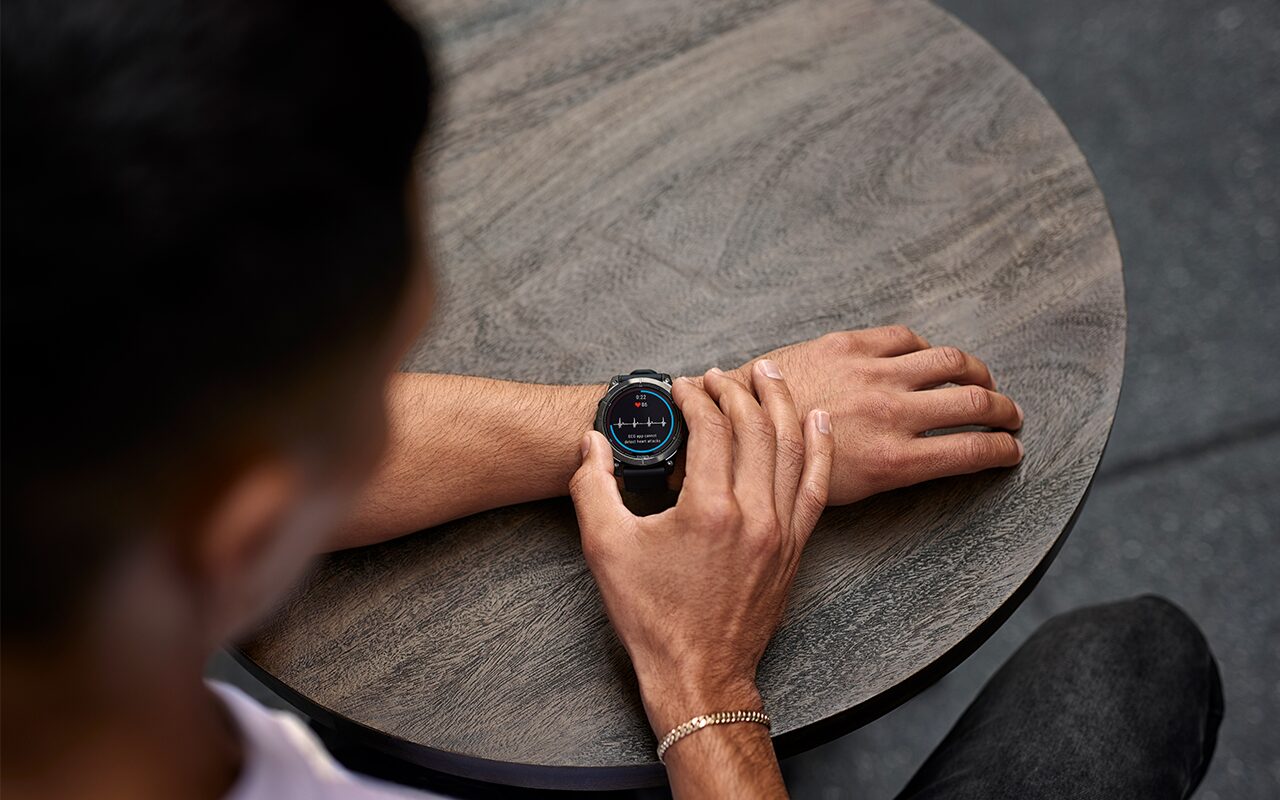
Researchers Find Promising Link Between Garmin Smartwatch Data and Mental Health Outcomes
Project Chéria participants who tracked physiological data using Garmin smartwatches were less likely to report symptoms of major depressive disorder.
According to a recent report by the World Health Organization, the onset of the COVID-19 pandemic has led to a 25% rise in depression and anxiety worldwide. But the situation is not hopeless. A recent study showed that participants wearing Garmin smartwatches to track physiological data were less likely to report symptoms of major depressive disorder. The study was a result of a collaboration between Labfront, ThoughtFull and Garmin and combined therapy with physiological data monitoring to learn how individuals respond to treatment. Dubbed Project Chéria, research found that individuals who wore Garmin smartwatches to track physical data, including sleep duration and quality, stress, steps, resting heart rate and heart rate variability (HRV)1, saw a 37% improvement on a self-reported health questionnaire tracking major depressive disorder.
Project Chéria
Mental health problems can pose a significant challenge in the workplace, decreasing productivity through absenteeism and presenteeism. Digital mental health interventions help avoid the stigma surrounding mental health by providing discreet access to advice and support, as well as allowing personalization. Project Chéria combines the power of smartwatches and virtual therapy to deliver a novel end-to-end approach to mental health care.
This project includes Labfront, a project-management and physiological-data platform that enables researchers to monitor study participants in real-world environments using consumer-based wearables such as Garmin smartwatches and ThoughtFull, Asia’s pioneering digital mental health company, partnering with employers, insurers and pharmas to provide access to end-to-end mental healthcare.
Utilizing Garmin Technology for Mental Health Research
In this project, 124 participants were selected based on several criteria, including their patient health questionnaire (PHQ-9) score. The PHQ-9 is the major depressive disorder module of the full PHQ. An individual’s score ranges from 0 to 27 — the higher the score, the more severe the depression disorder. Participants in this study had scores ranging between 0-9, indicating normal to mild symptoms of major depressive disorder.
Participants in the intervention group wore the Garmin Venu® Sq GPS smartwatches, tracking physical data including sleep duration and quality, stress, steps, resting heart rate and HRV. The Labfront platform leveraged both the Garmin Health API and the Companion SDK to provide more granular data, allowing for a more detailed analysis.
“We chose Garmin because we wanted the ability to access the granular beat-to-beat interval data via Labfront in order to derive HRV,” said Chris Peng, Labfront CEO. HRV seems to have a strong correlation with depression. Studies have shown that people with major depression have lower HRV than healthy controls. Conversely, elevated or increased HRV is correlated with positive mood, positive emotional regulation, flexibility and social engagement.
Participants in both the intervention and the control group were given access to the ThoughtFullChat app — a subscription-based mobile platform that empowers users to engage with their mental health via self-reporting, guided lessons and text-based coaching with certified mental health professionals.
“Understanding that much of mental health insights are still heavily reliant on subjective data, ThoughtFull wanted to enhance our clinician’s ability to delve deeper into their clients’ well-being and progress by integrating objective data into their intervention methodology,” said Joan Low, ThoughtFull CEO. “Labfront’s platform, coupled with the Garmin wearable, were the best options for in-depth data collection and analysis to achieve the intended outcomes.”
Mental Health Insight Using Physiological Markers
Project Chéria found that users in the intervention group experienced a significant improvement of 37% in their PHQ-9 scores compared to the control group, which saw no significant improvement. The study demonstrates that digital mental health interventions may be enhanced by incorporating data on physical activity, sleep quality and heart rate from Garmin wearables with subjective patient feedback. In addition, users are afforded greater insight into their mental health and can leverage their own physiological markers to take action.
Emboldened by these results, future research will focus on whether physiological factors such as activity, sleep and heart rate can be used to predict mood/depression, thus allowing healthcare professionals to intervene and prompt patients with advice and suggestions, including increased physical activity.
Want to learn more about related projects? Then read this blog about a collaboration hoping to predict depression for future prevention or learn more about Garmin Health research projects here.
1Garmin devices are not designed or intended to monitor or diagnose diseases or any medical conditions. Find information on metric accuracy here.
As an additional resource, the health research community is invited to attend the next Garmin Health Research Webinar on July, 19th at 4pm CET / 9am CDT. The 45-minute Webinar will provide unique insights into Garmin’s latest sensor technology updates. Unique research challenges and ways to overcome them with Garmin wearable devices will be discussed. Researchers interested in attending may register here.





